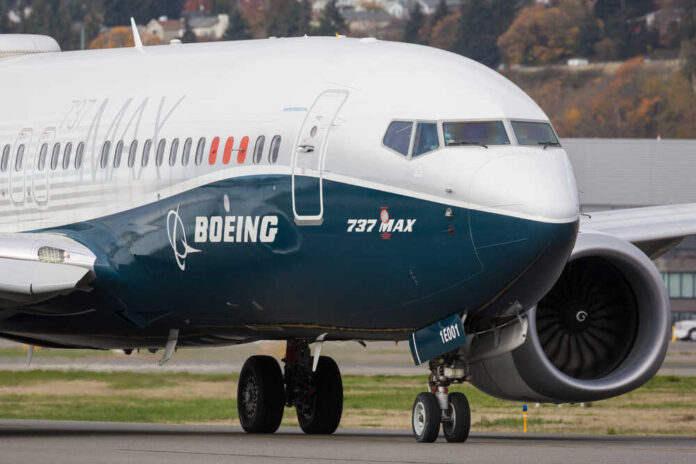In late December, Boeing urged airlines to inspect the rudder-control system in their fleet of 737 Max aircraft for a possible loose bolt or missing nut after one airline discovered a missing nut during routine maintenance, the New York Times reported.
According to a news release from the Federal Aviation Administration (FAA), when the unnamed international airline notified Boeing of the missing nut, Boeing also found an improperly tightened nut on an undelivered 737 Max.
Since 2017, more than 1,370 737 Max airplanes have been delivered by Boeing worldwide. The company urged that all of them be inspected to look for possible loose hardware. Boeing said it was also inspecting the aircraft it has yet to deliver.
Boeing said the improperly tightened nut that it found on inspection has been “remedied” and urged all operators to inspect their fleet of 737 Max airplanes “out of an abundance of caution” and report the findings of the inspections to Boeing.
The inspections involve the removal of an access panel to visually confirm that the rudder-control system bolt has been properly installed. According to Boeing, each inspection should take about two hours.
In its news release, the FAA said it was “closely monitoring” the inspections of the aircraft and if there were additional instances of the problem, it would consider further action.
Boeing said no “in-service accidents” had been caused by the loose hardware. It also said that flight crews should conduct checks that would alert them if there was an improperly working rudder before leaving the gate.
A single-aisle aircraft designed for short and intermediate travel, the 737 Max is used by several major US airlines, including American, Alaska Airlines, Southwest, and United. The airline companies each said that the inspections were not expected to affect normal operations.
Southwest Airlines said it was conducting the inspections during routine overnight maintenance.


















